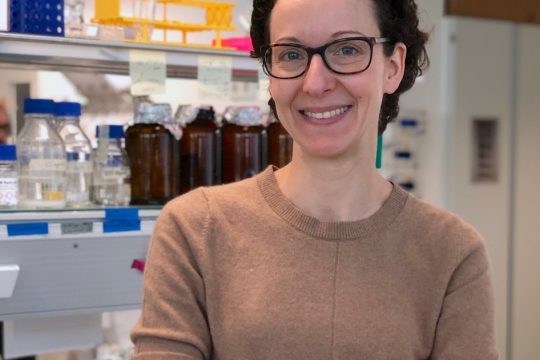RNA is typically understood as an intermediary molecule between DNA and protein. But, many noncoding RNAs, as well as the noncoding regions of messenger RNA, are increasingly appreciated as important regulators of gene expression and cellular functions. The forefront...
RNA metabolism dysfunction and RNA-targeting therapy in neurodegeneration The nervous system has extremely complex RNA processing regulation. Dysfunction of RNA metabolism has emerged to play crucial roles in multiple neurological diseases. Mutations and pathologies of several RNA-binding proteins are...
The evolution of multicellularity occurred hand in hand with the diversification of cell types with disparate morphologies and functions. This segregation of function across different cell types enabled astounding animal complexity; but at the same time, extreme specializations of...
The goal of my research program is to answer a fundamental biological question: how is the genome properly interpreted to coordinate the diversity of cell types observed during neuronal development? We are focused on the acquisition of specific cellular...
The ribosome is a complex molecular machine that translates the genetic code into functional polypeptides. Our work focuses on understanding how the ribosome functions at a molecular level and how changes in its activity lead to mRNA quality control...
Understanding how the information in the genome is utilized is one of the central questions in modern biology. It has become clear that a critical level of gene regulation occurs through the chemical modification of both the DNA itself...
The Fukunaga lab is broadly interested in RNA biology. More specifically, the Fukunaga lab investigates the mechanism and biology of post-transcriptional gene regulation controlled by small silencing RNAs and RNA-binding proteins. Our research projects will answer fundamental biological questions...
The vertebrate central nervous system (CNS) is an amazingly complex structure composed of distinct subtypes of neurons and glia. Our lab aims to identify the molecular mechanisms that control the generation of the major cell types of the vertebrate...
Our laboratory studies the molecular and cellular mechanisms underlying the perception of pain under healthy conditions and in the setting of pathology. Towards this goal, we utilize a wide spectrum of approaches including behavioral analysis, in vivo and in...










